DESIBUZZCanada
Events Listings
Dummy Post

International Day Of Yoga To Be Virtually Celebrated Saturday At 4pm

CANCELLED: Coronavirus Fears Kills Surrey’s Vaisakhi Day Parade

ADVERTISE WITH US: DESIBUZZCanada Is The Most Read South Asian Publication Online

SURREY LIBRARIES: Get Technology Help At Surrey Libraries

WALLY OPPAL: Surrey Police Transition Update On Feb. 26

GONE ARE THE DAYS - Feature Documentary Trailer

Technology Help At Surrey Libraries

Birding Walks

Plea Poetry/short Story : Youth Contest

International Folk Dancing Drop-in Sessions
US Drug Sleuths Are Hunting For Bakshish “Zira” Sidhu In Mexican Drug Cartel Money Laundering Case But Sidhu Is Roaming Free In Surrey
- April 11, 2021
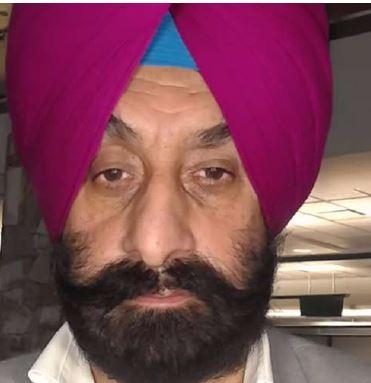
Top U.S. Drug Enforcement Administration (DEA) sleuths are reportedly hunting for Bakshish Singh “Zira” Sidhu, a Surrey-based money exchange operator who they claim is a key money launderer linked with the dreaded Sinaloa drug cartel of Mexico. They are also hunting for his two aides, Balwant Rai Bhola and Sanjeev Bhola. According to a DEA report, Sidhu’s last known address was located in Surrey, but it doesn’t say if they ever sought to arrest him or seek his extradition. Sidhu, who has delved in the Punjabi film business, most notably being a co-producer of some films produced and distributed by White Hill Films. He most recently managed production of Punjabi film Atte Di Chirri, which filmed in Vancouver a few years ago. Recently, he had announced a web serial called Takht, which had failed several times to begin production. But in early March, 2021, a production was registered with a Mumbai film body bearing the name of Bakshish Sidhu.
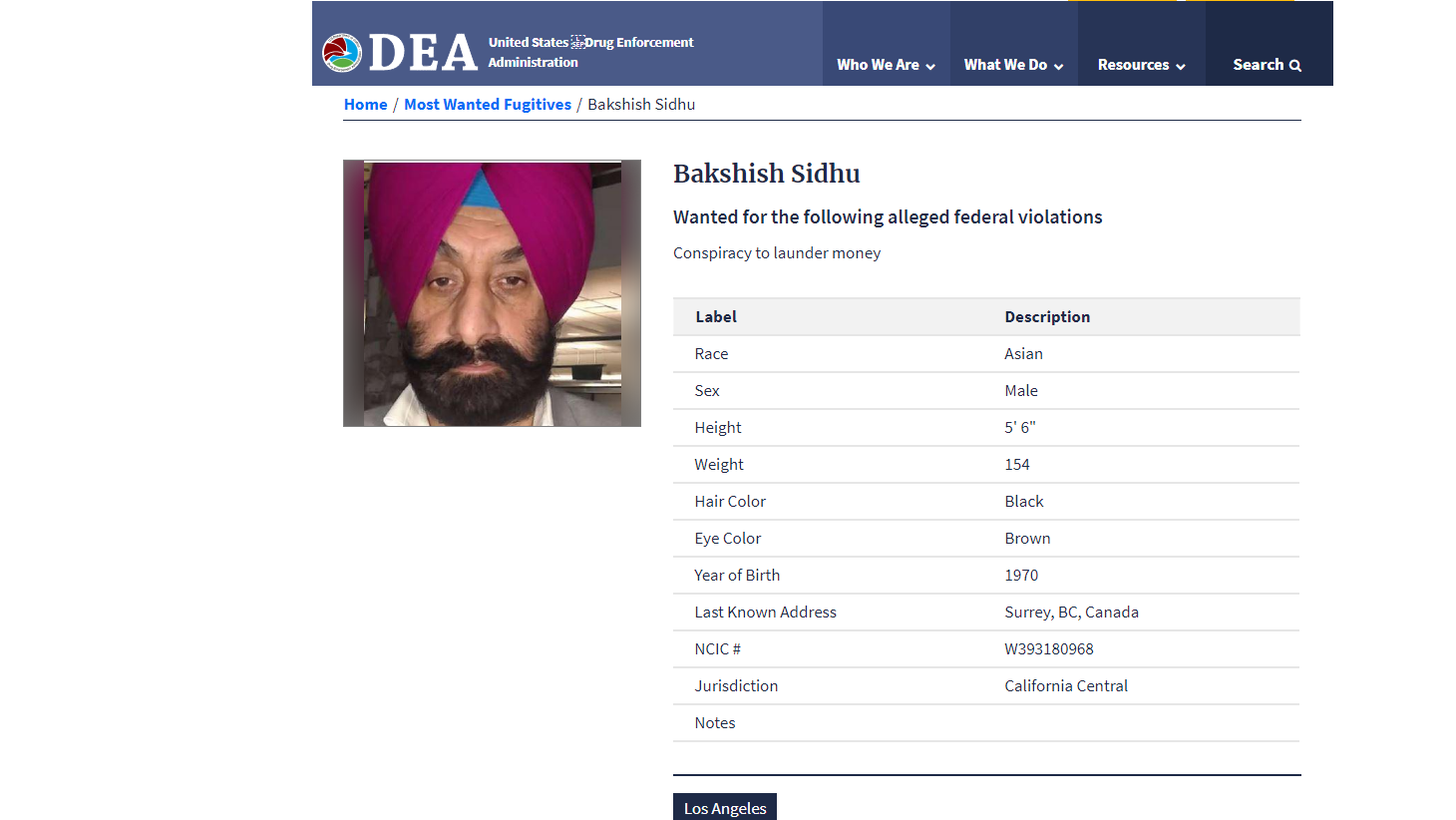
By DESIBUZZCanada Staff With News Files
NEW YORK – Top U.S. Drug Enforcement Administration (DEA) agents are reportedly hunting for Bakshish Singh “Zira” Sidhu , a Surrey-based money exchange operator who they claim is a key money launderer linked with the dreaded Sinaloa drug cartel of Mexico. They are also hunting for his two aides, Balwant Rai Bhola and Sanjeev Bhola.
But Sidhu has been roaming free in Surrey, BC, six years after his name first came up in the “Hawala Money” laundering case involving the Mexican drug cartel. It is not known whether the DEA ever started extradition of Sidhu or whether they are unaware that he has lived in Surrey, Canada for years.
Sidhu told local Punjabi media that he has never been served by the DEA and he will be getting legal representation to deal with this matter. DESIBUZZCanada has reached out to DEA media office for comment on Sidhu’s case but we have not heard back from the US Drug Enforcement Agency.
As per DEA reports, Sidhu was earlier working for international hawala ring leader Gurkaran Singh, a Canadian national of Indian origin. Gurkaran was arrested by the DEA a few years ago in Los Angeles, Calif., on charges of providing millions of dollars to the Sinaloa Cartel.

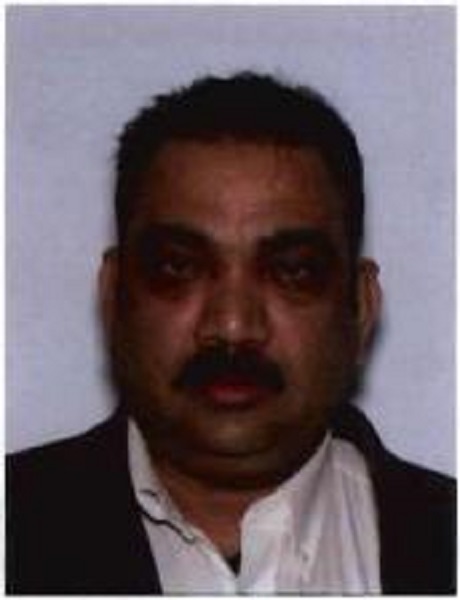
The DEA's wanted list also names Balwant and Sanjeev Bhola as members of the international hawala ring allegedly working at the behest of Mexican drug cartels. Along with Sidhu, both Sanjeev and Balwant are charged for "conspiracy to launder money."
According to a DEA report, Sidhu’s last known address was located in Surrey, but it doesn’t say if they ever sought to arrest him or seek his extradition.
Sidhu, who has delved in the Punjabi film business, most notably being a co-producer of some films produced and distributed by White Hill Films. He most recently managed production of Punjabi film Atte Di Chirri, which filmed in Vancouver a few years ago. Recently, he had announced a web serial called Takht, which had failed several times to begin production. But in early March, 2021, a production was registered with a Mumbai film body bearing the name of Bakshish Sidhu.

Sidhu comes from a political family in Punjab where generations of Sidhu-Ziras have been in politics including his brother Inderjeet Zira, who was part of the Tohra Akali group. Sidhu’s nephew Kulbir Zira is an MLA with the current ruling Congress party in Punjab and was beaten up during a recent appearance at a farmers protest rally. Punjab Chief Minister Capt. Amarinder Singh has publicly taken a stand against drugs racket and it is not known how the news of his MLA’s uncle allegedly involved in money laundering with a dangerous Mexican drug cartel will have an impact on MLA Zira.
Sidhu’s name first came up in the case in 2015 when he was part of seven people named in the indictment who were listed as fugitives including the Bhola brothers. The suspects were identified as Jesus Manuel Perez Rios, 33, of Coachella; Sanjeev Bhola, Balwant Bhola and Bakshish Sidhu, all listed as Indian nationals (although Sidhu could be Canadian); Jason Robert Carey, 37; Tina Pham, 25, and another man only known to authorities as “Buddy, all from Canada.
Aside from Sidhu, several Indian-origin drug traffickers have been earlier operating from Surrey, which touches the U.S. border
Sidhu was not the only one from India to facilitate funds for the Sinaloa Cartel. In 2018, two Indians, Manu Gupta and Mohammed Sadik, were arrested by the Directorate of Revenue Intelligence (DRI) from Indore for supplying drugs to one Jorge Solis, member of the Sinaloa Cartel.
The DRI had recovered 10 kg of drugs from the possession of Solis and Gupta which were priced over Rs. 100 crore in the international market. Gupta was later found to be working for the Sinaloa Cartel for the past several years.
Sinaloa is a sovereign state in western Mexico. The strategic location of Sinaloa and political patronization gives the drug cartel a safe haven to operate their international drug racket from this state.
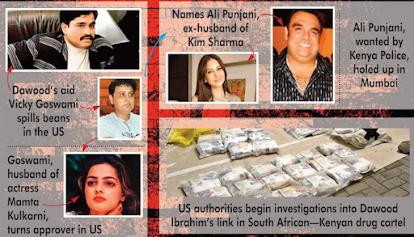
The DEA earlier unearthed another big-time drug cartel involving Vicky Goswami, a former aide of underworld don Dawood Ibrahim, head of the infamous Southeast Asian criminal group, the D-Company ("D" for Dawood).
Goswami , who was married to former Bollywood actress Mamata Kulkarni, was extradited by the U.S. Drug Enforcement Administration and jailed in New York.
The DEA had also tipped Indian agencies about a pharmaceutical company allegedly operating from India, where drugs like mandrax and ephedrine were being manufactured. The pharma company having links with alleged drug traffickers was later sealed by the police.
The investigation report filed by the DEA in the U.S. District Court, Southern District of New York on July 25, 2019, had revealed the name of D-company aide Goswami and Ali Punjani, former husband of another Bollywood star Kim Sharma.
In 2015, a four-year Drug Enforcement Administration investigation into money laundering led to the indictment of 22 people, including several from Southern California.
On May 30, 2015, Harmeet Singh, 54, of Chino Hills, Harinder Singh, 30, of Monrovia and Sucha Singh, 51, of Arleta were arrested at their homes. Ramesh Singh, 46, of Alhambra turned himself in to federal agents on June 2, a Department of Justice news release said at the time.
Officials allege the 22 defendants laundered drug trafficking proceeds in Canada and the United States generated from unspecified amounts of sales of drugs for the Sinaloa Cartel and its affiliates.
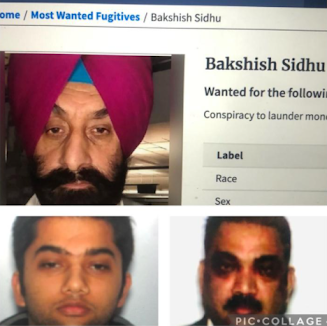
The others named in the indictment who were taken into custody were identified as Miguel Melendrez Gastelum, 35, of Coachella; Shannon Aubut, 30, of Ontario, Canada; Paul Alan Jacobs, 42, of Venice; Jose De Jesus Montenegro, 49, also of Coachella; Breidi Alberto Espinoza, 28, of Corona; Alberto Diaz, 28, of San Diego; Christopher Fagon, 37, also of Ontario, Canada; Jose Luis Barraza, 47, also of Coachella, and Sanjeev Wadhwa, 36, an Indian national.
Seven others named in the indictment were listed as fugitives including Sidhu and the Bhola brothers. They were identified as Jesus Manuel Perez Rios, 33, of Coachella; Sanjeev Bhola, Balwant Bhola and Bakshish Sidhu, all Indian nationals; Jason Robert Carey, 37; Tina Pham, 25, and another man only known to authorities as “Buddy, all from Canada.
Another arrest was that of a Canadian man as he tried to enter the U.S. in Buffalo, New York. Gurkaran Singh Isshpunani, the lead defendant in a grand jury indictment, was placed into custody Sept. 14.
The indictment, returned under seal by a federal grand jury in Los Angeles in November 2014, accuses Isshpunani of being the leader of an international “hawala” ring transferring drug proceeds for the cartel.

Hawala is an informal method of transferring money without any physical money actually moving. It is described as a "money transfer without money movement." Another definition is simply "trust."
Hawala is used today as an alternative remittance channel that exists outside of traditional banking systems. Transactions between hawala brokers are made without promissory notes because the system is heavily based on trust and the balancing of hawala brokers' books.
Hawala originated in South Asia during the 8th century and is used throughout the world today, particularly in the Islamic community, as an alternative means of conducting funds transfers. Unlike the conventional method of transferring money across borders through bank wire transfers, money transfer in hawala is arranged through a network of hawaladars or hawala dealers.
Hawala dealers keep an informal journal to record all credit and debit transactions on their accounts. Debt between hawala dealers can be settled in cash, property, or services. A hawaladar who does not keep their end of the deal in the implied contractual system of hawala will be tagged as one who has lost their honor and will be ex-communicated from the network or region.

















